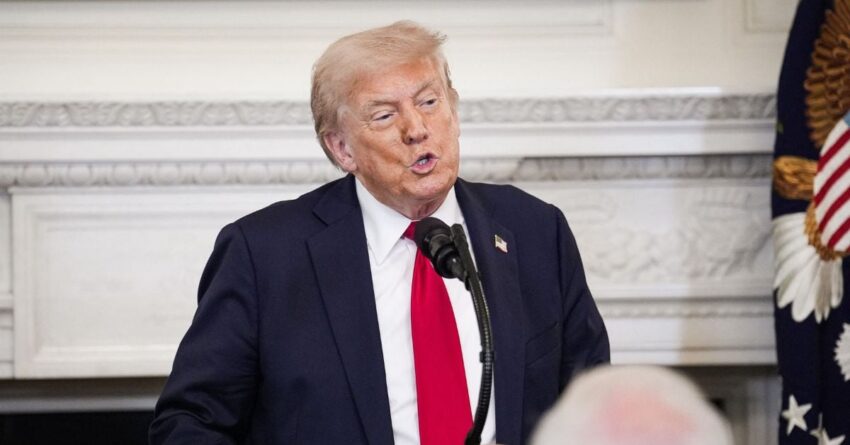President Donald Trump‘s One Big, Beautiful Bill has undergone multiple revisions over the past few months. One of the most controversial changes? A major shift in how top colleges and universities are taxed — potentially putting college tuition and financial aid at risk.
Endowment tax explained

The bill introduces a steep increase in endowment taxes, targeting institutions with large financial reserves. While the current law imposes a flat 1.4% tax on income from university endowments, the proposed legislation adds tiered tax rates that could rise as high as 8%. However, colleges with fewer than 3,000 tuition-paying students would be exempt from the new rule, regardless of their endowment size. According to the Joint Committee on Taxation, the revamped tax could raise $761 million over the next decade. Yet higher education experts warn that the cost may fall on students in the form of tuition hikes and reduced financial aid.
Which universities will be affected

A Forbes analysis found that at least 11 major U.S. universities, including elite research institutions, would be subject to the higher 8% or 4% endowment tax by 2026. Only five schools are expected to remain at the current 1.4% rate. Previously, about 56 universities collectively paid $380 million under the original tax structure. One of the most affected institutions is Yale University. In a recent statement, the school’s President Maurie McInnis estimated the university would owe $280 million in the tax’s first year. “Although the endowment tax is lower than what the House passed originally, it still means that Yale will pay an estimated $280 million in the first year it is in effect, and likely more in subsequent years,” she said, referencing the earlier versions of the proposal, which called for tiered rates as high as 21%. Before the bill was passed, the university revealed it had begun a temporary hiring freeze, lowered salary increases for staff and delayed construction projects in anticipation of the tax increase.
‘Unprecedented fiscal challenges’

The higher endowment tax comes as colleges already face rising costs, drops in public funding and limitations on international student enrollment — a lofty revenue source for many universities. “Colleges, both private and public, are facing unprecedented fiscal challenges this year and en masse,” Robert Franek, editor-in-chief of The Princeton Review, said. “Most concerning, for prospective students, is these factors may cause tuitions to be higher and reduce the amount of financial aid schools award,” he added.
Financial Aid impacted

For elite colleges with large endowments, generous financial aid packages have served as a way to attract low-income and first-generation students. However, the higher taxes may now threaten those programs. At a handful of institutions, the increased endowment tax will surpass their entire financial aid budget, according to higher education expert Mark Kantrowitz, “making it difficult for colleges to continue to award very generous financial aid.” Phillip Levine, an economics professor at Wellesley College, said in an interview with CNBC, “We’re already seeing evidence that institutions are raising their sticker prices more than they have been in the past.” As universities shift to absorb the costs of the tax increase, students and families could soon feel the impact — both in their tuition bills and reduced aid options.
The post Increased taxes in Trump bill impact college tuition appeared first on Knewz.
Click this link for the original source of this article.
Author: Isabella Torregiani
This content is courtesy of, and owned and copyrighted by, https://knewz.com and its author. This content is made available by use of the public RSS feed offered by the host site and is used for educational purposes only. If you are the author or represent the host site and would like this content removed now and in the future, please contact USSANews.com using the email address in the Contact page found in the website menu.





